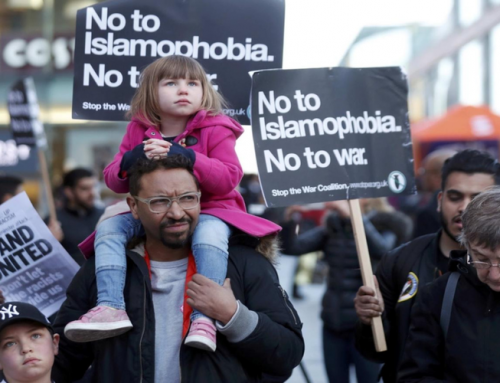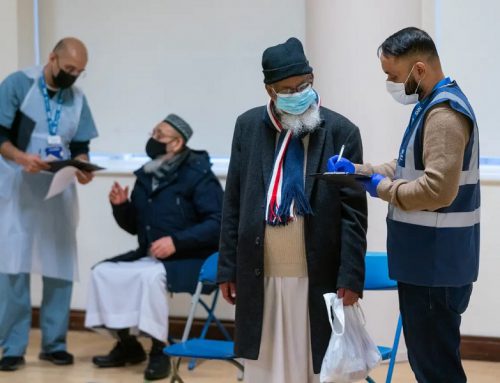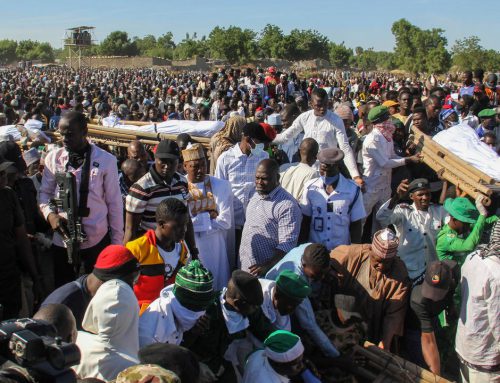The phenomenon of terrorism appears on the face of it to be without end. However, history confirms that all terrorist movements end for a number of different reasons. For example, statistics of the Institute for Economics and Peace show that since the sixties, most terrorist organisations that were active in over this period were eradicated due to political processors while just over 7% were eradicated using armed force. Perhaps Islamic history provides us with evidence documenting this fact. The Kharijites disappeared completely from history. During the period of the rightly guided caliphs five wars were waged between the Kharijites and Imam Ali may Allah be pleased with him. At the beginning of the Umayyad Caliphate, they waged some 23 wars against the state, and were able, in some cases, to shake the foundations of the state as they did in their first encounter with the Umayyad dynasty in 41 AH and were close to victory were it not for the support of the people of Kufa.
Despite the multiplicity and diversity of the Kharijites which reached 30 sects by some accounts, all these groups failed and fell to extinction. Here, we contrast the present with history in a quick comparison between the demise of the Kharijites and the fate of contemporary extremist movements that have become a daily scene in the Muslim world and the Muslim life.
We cite here the following points:
Weakness in their religious foundations due to blind submission to their leaders. They are void of intellectual leadership. Such was also the case of the early Kharijites whereby no companion joined their ranks not a righteous follower renowned for their knowledge. Such is the case of contemporary terrorist groups which are established and nurtured at the hands of leaders void of Islamic knowledge. The majority are engineering and medicine graduates, and none of them has attained high levels of knowledge and education. For this reason, the convictions of the followers rapidly change after they experience the reality of terrorist groups and they question the foundations for which they were once prepared to give up their life.
The Kharijites did not emerge from some organised military or naval force or a seasoned political group. For this reason, they change their orientation based on the whims of their leaders, who are often tribal and are not scholars. This has contributed to their fragmentation and the emergence of splinter groups leading to infighting among them. This situation which is evident among contemporary terrorist groups which proliferate and separate from each other easily and sometimes for no apparent reasons. The Salafist-jihadist that emerged in the seventies has split into multiple groups. We find Daesh conflicting with al-Qaeda in Syria and Afghanistan. Such was also the case for the feuding jihadist groups in Algeria in the mid-nineties.
The capricious nature of these movements is often the result of the group forming due to a violent reaction to a political injustice against a certain segment of society. They embrace the beliefs of the disgruntled groups and not vice versa. Once they prove their inability to realise the hopes of the peoples and fail to convince Muslims of the legitimacy of their actions, at this point most of the extremist organisations disappeared. This is true for the terrorist groups in Algeria which failed to convince people of their agenda. It was also the case for the jihadist groups in Egypt and is proving true for al-Qaeda which has failed to realise any of the hopes and aspirations of Muslims and has succeeded in bringing about misery and destruction.
The simplicity of their theoretical foundations and lack of religious justification. Their simplistic views and reasoning make it easy for their enemies to get the better of them and eliminate them. The Umayyad commander Muhallab ibn Abi Safrah managed to sow dispute between them and weaken them internally. This is being repeated in our time where such groups are easily penetrated by multiple methods of intelligence services who are using them to achieve their interests and sow instability in the Muslim world.
The lack of consistency in the intellectual, cultural and ethnic make-up makes the cohesion of these movements difficult. An internal dispute is not resolved until another emerges because of this disparity. The first leader of the Kharijites, Madan al-Iyaadi, left them because he did not understand a few verses of poetry and was replaced by Abdullah bin Wahab al-Raasbi. The leadership between them changed so often that it met with ridicule among historians. Ibn Kathis said of the “this kind of people are among the strangest sons of Adam, Glory be to He who varies His creation as He pleases.” The Kharijites divided into some thirty groups. This phenomenon applies to contemporary extremist groups which divide into multiple groups as was the case for the terrorists in Algeria in the nineties and is the case for Daesh who execute their followers because of internal dissension.
Many of the extremist groups transform into small gangs and bandits living in the countryside as they cannot face the armies of the Muslim state. This took place in Islamic history where most of the Kharijites turned into bandits looting convoys and raiding villages and towns to secure their livelihood. The same is what we are seeing from the Ansar al-Sharia group in sub-Saharan Africa and other groups that have turned into gangs that kidnap innocent people and ask ransoms for their release. They no longer have a mission not any basis for their existence.
The reasons for the demise of these groups historically and presently are numerous. Here we list in few in brief:
The death of the commander or leader means the ideas die with him.
Belief in dialogue and negotiations with the government.
Frustration from achieving any success thereby leading to their extinction.
Eliminating them militarily by state organs.
The transition to political activity.
The odd lesson from this historical comparison between extremist movements, past and present, at least in the Islamic context, proved that their movements had no success in history and failed to achieve their goals. They always make things worse nor have they changes the States that have sought to interfere with the Muslim world. This questions their ideology and feasibility of their convictions.
*Dr.Tarik Ladjal is Professor of History at Effat University in Jeddah, Saudi Arabia





